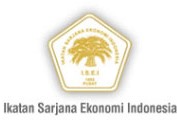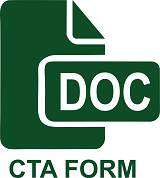Delphi Method in Analyzing of Minimum Wage Setting in Indonesia: Formula vs. Negotiation Model
(1) Country Manager Better Work Bangladesh Program - ILO, Bangladesh
(2) Institutional Economics and Governance Research Cluster, Department of Economics, Universitas Indonesia, Indonesia
Abstract
Many countries set their minimum wages based on two models, through negotiation or mathematical formulas. In Indonesia, the negotiation model has been used to determine the minimum wages since 2003. In 2015, the law introduced the simple formula model that was further revised in 2016 with additional variables. Using the Delphi method, this study aims to find experts’ consensus regarding whether the governance of the formula model is superior to that of the negotiation model in terms of transaction cost minimization. Using the transaction cost economics approach, the two governances were compared in their performance in facilitating the negotiation, coordination, and dispute prevention between employ-ers and workers. This study finds that most experts reached a consensus, claiming that the mathematical formula model is more efficient than the negotiation model. In addition, most of the experts argue that data from the Central Statistic Agency (BPS) and the elimination of the role of regional heads increase the efficiency of the formula model. However, no consensus was reached regarding whether the mathematical formula can outperform the negotiation model in minimizing the risk of future disputes.
Keywords
Full Text:
PDFReferences
Basu, A. K., Chau, N. H. & Kanbur, R. (2010). Turning a Blind Eye: Costly Enforcement, Credible Commitment and Minimum Wage Laws. Oxford: The Economic Journal.
Belser, P. & Sobeck, K. (2012). What Level Should Countries Set Their Minimum Wages?. Geneva: ILO.
Boeri, T. (2012). Setting The Minimum Wage. Labour Economics.
Brooks, K. (1979). Delphi Technique: Expanding Applications. North Central Association Quarterly.
Caraway, T., Ford, M. & Nguyen, O. (2019). Politicizing the Minimum Wage: Wage Councils, Worker Mobilisation, and Local Elections in Indonesia. Politics & Society.
Cowgill, M. & Huynh, P. (2016). Weak Minimum Wage Compliance in Asia’s Garment Industry (5th ed.). Bangkok: International Labour Organization.
Dickens, R. (2015). How Are Minimum Wages Set?. s.l.: IZA World of Labor.
Doria, M. D. F., Boyd, E., Tompkins, E. & Adger, W. N. (2009). Using Expert Elicitation to Define Successful Adaptation to Climate Change. Environmental Science and Policy.
Fealy, G. (2020). Jokowi in the Covid-19 Era: Repressive Pluralism, Dynasticism and the Overbearing State. Bulletin of Indonesian Economic Studies, 56(3). 301-323.
Hamid, A., & Hasbullah, H. (2021). The Implementation of criminal sanctions as ius puniendi: A case study of entrepreneurs paying below the minimum wage in Indonesia. International Journal of Research in Business and Social Science. 10(4). 535–548.
Hasson, F., Keeney, S. & McKenna, H. (2000). Research Guidelines for the Delphi Survey Technique. Journal of Advanced Nursing.
Hernandez, J. G. V., & Ortega, R. P. (2019). Bounded rationality in decision–making. MOJ Research Review. 2(1). 1‒8.
Kaufman, B. (2010). Institutional Economics and the Minimum Wage: Broadening the Theoretical and Policy Debate. International Labour Review.
ILO. (2017). Minimum Wage Policy Guide: A Summary. Geneva: International Labour Organization.
Lanford, H. W. (1972). Technological Forecasting Methodologies. American Management Association.
Law No. 13 Year 2003 on Employment. Jakarta: President of Republik of Indonesia.
Government Regulation No. 78 Year 2015 on Wages. Jakarta: President of Republik of Indonesia.
Law No. 20 Year 2020 on Job Creations. Jakarta: President of Republik of Indonesia.
Government Regulation No. 36 Year 2021 on Wages. Jakarta: President of Republik of Indonesia.
Mankiw, N. G. (2010). Macroeconomics 7th Editions. New York: Worth Publishers.
Manning, C., & Pratomo, D. (2018). Labour Market Developments in the Jokowi Years. Journal of Southeast Asian.
Murry, J. W., & Hammons, J. O. (1995). Delphi: A Versatile Methodology to Conduct Qualitative Research. The Review of Qualitative Research.
Neumark, D., & Wascher, W. (2008). Minimum Wages. Cambridge: MIT Press.
Nordhaus, W. (1975). The Political Business Cycle. The Review of Economic Studies.
North, D. (1990). Institutions, Institutional Change, and Economic Performance (Political Economy). Cambridge: Cambridge University Press.
Praščević, A. (2020). The Applicability of Political Business Cycle Theories in Transition Economies. Zagreb International Review of Economics & Business, 23. 73-90.
Saget, C. (2008). Fixing Minimum Wage Levels in Developing Countries: Common Failures and Remedies. Geneva: International Labour Organization.
Simon, H. (1955). Behavioural Model of Rational Choice. The Quarterly Journal of Economics.
Vredenburgh, K. (2023). Bureaucratic discretion, legitimacy, and substantive justice. Critical Review of International Social and Political Philosophy, 26(2). 251-259.
Weaver, W. (1971). The Delphi Forecasting Method. The Phi Delta Kappan.
Williamson, O. (1979). Transaction–Cost Economics: The Governance of Contractual Relations. The Journal of Law & Economics.
Williamson, O. (1985). The Economic Institution of Capitalism: Firms, Markets, Relational Contracting. New York: Free Press.
Williamson, O. (2005). The Economics of Governance. American Economic Review.
Wulansari, A. D. (2021). Indonesia's Cheap Wages Regime: The Political Economy of Minimum Wages Policy under Jokowi Presidency. Fudan J. Hum. 14, 417–444.
Refbacks
- There are currently no refbacks.

This work is licensed under a Creative Commons Attribution 4.0 International License.






